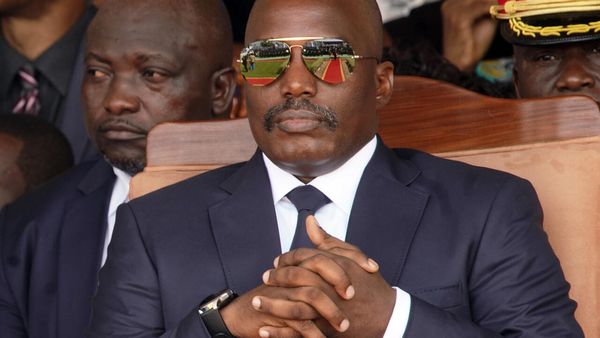Some of Ireland’s top producers have defended the licence fee - saying it will undermine democracy if we decided to scrap the annual charge.
A host of famous faces have shown solidarity with the BBC after UK Culture Secretary Nadine Dorries indicated the licence fee would be axed.
In a tweet, Ms Dorries, 64, said the next announcement about the fee “will be the last” amid reports it will be frozen for the next two years.
And now two of Ireland’s top producers have weighed in on the debate – saying it is madness to suggest axing the licence fee here.
ShinAwiL CEO Larry Bass – who produces Dancing With The Stars – said if we scrap the licence fee here in Ireland, it will “undermine democracy”.
He said: “I think it is completely mad what is going on in the UK.
"You have the world’s best broadcaster – the BBC – now being threatened because the Tory Government don’t like being talked about in the media.
"You’ve got a very dangerous scenario where public debate, it suits political parties like the Tories to rule out public debate and if they didn’t have a BBC to put up with, they would be much happier.
“They would rather have a media like the US where you can only have a debate if you can afford to pay for it, which obviously favours parties on the right rather than any type of debate coming from the left, so you don’t have a proper public discourse. And that goes for all matters, not just about broadcasting obviously.
“I think when you threaten an organisation like the BBC with pulling their funding and changing the way they collect funding, you’re undermining democracy. That suits the Tories at the moment – and that is what their game is.”
Mr Bass said RTE has been “threatened for many years”, adding: “We don’t have a properly funded public broadcaster.
“Our problem is while Netflix, Amazon Prime and HBO is a great service, they are not there to service the public good, they are there to service consumer choice and that is a huge difference between having a media where we can rely on it for properly balanced information, properly balanced news reporting and current affairs debate.
"So we are slowly but surely heading in the direction for what is responsible for January 6 insurrection in the US, where you are going to leave all of the public discourse to the platforms, whether it will be social media or over the top platforms like Netflix and Amazon to be the only place that will public debate.
“If that is going to be the case, watch this space. You will undermine democracy,” he added.
And Kite Entertainment boss Darren Smith – who produces Ireland’s Fittest Family – has compared scrapping the BBC’s licence fee to the Irish Government announcing going to war with the GAA.
He said: “It’s mad. It is like the third act of Britain’s act of self-harm – Brexit, Boris and now they’re going to cancel the BBC.
"It’s like the Irish Government deciding their going to war with the GAA.
"They have this unique amazing organisation that builds their reputation globally that supports a billion pound industry in terms of British TV production that entertains and informs the nation and they’re going to try and attack it?
“That’s not to say that the licence fee is the perfect model, but it is like democracy – it is the best least perfect model.
"No one has come up with the alternative yet.
"The question is, do you want – when there is an election – do you want your news media coming from Silicon Valley or the UK or do you want strong, local journalism.
"It’s not perfect and RTE isn’t perfect, as every newspaper points out every day, but it does a pretty good job.
“What’s the alternative?
“If you look at the people who are paid too much money it is generally for their radio work because if they went elsewhere they would get more money. Other stations would happily pay more for those names to have on their stations. It’s the market - it’s not Rte being generous.
“I say all this without having the answer, but the answer isn’t ban it or scrap it, the answer is come up with a plan,” he added.
A spokesman for Tourism, Culture, Arts, Gaeltacht, Sport and Media said: “The Future of Media Commission was tasked with making recommendations on RTÉ’s role, financing and structure. "The Commission’s Terms of Reference instructed it to examine how media could be funded in a way that is sustainable, gives greater security of funding, ensures independent editorial oversight and delivers value for money to the public.
"The Future of Media Commission’s recommendations are currently being considered by Minister Martin and An Taoiseach. They will then decide next steps with Cabinet colleagues."
A spokesman for RTE said: "Decisions about the funding of public service broadcasting, including TV Licence funding, are made by Government. Currently, this is done through Ireland’s TV Licence system which, as we have stated on many occasions, is broken and no longer capable of properly supporting public service broadcasting in Ireland.
"In this context, the Department of An Taoiseach established the Future of Media Commission to consider how public service media, including RTÉ, could be funded over the next 10 years.
"The findings of the Future of Media Commission, which concluded last year, have yet to be published. "
RTE also pointed out that the outdated TV licence fee system in Ireland results in more than €60million in lost licence fee revenue Ireland every year.
This is due to 15% evasion (compared to 7% in the UK) and the growing number of households (approx. 13%) who do not have to pay the TV Licence but can still watch RTÉ programming on RTÉ Player. This problem does not exist in the UK.







